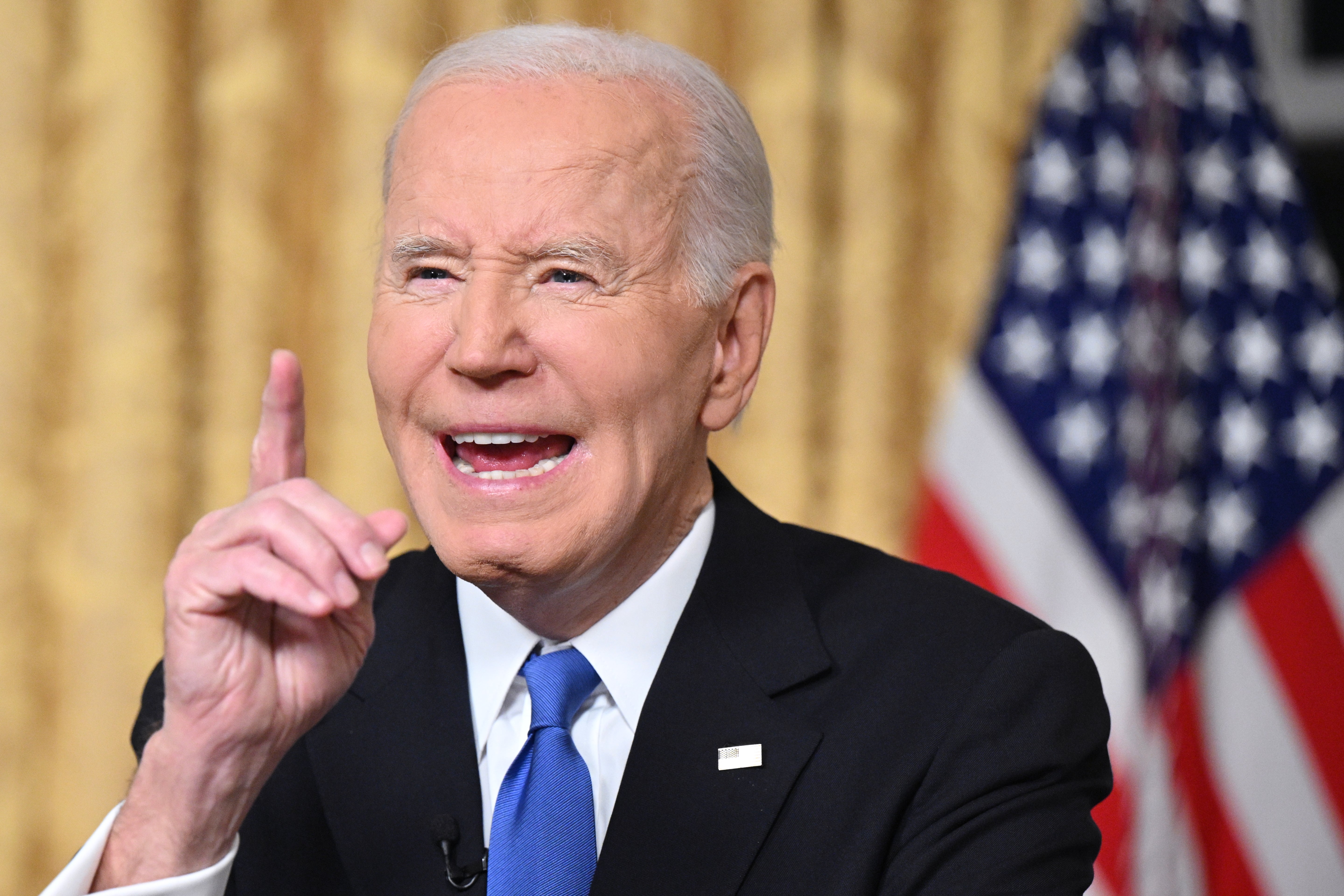In his final address to the nation as president, Joe Biden called for the creation of a new Constitutional amendment to demolish the concept of presidential “immunity” from criminal prosecution.
“We need to amend the Constitution to make clear that no president, no president, is immune from crimes he or she commits while in office,” he said in remarks from the Oval Office on Wednesday.
“The president’s power is not unlimited,” he said. “It’s not absolute. And it shouldn’t be.”
Last summer, the Supreme Court’s conservative majority granted sitting presidents absolute “immunity” from criminal prosecution for actions stemming from “official” duties, and “presumptive” immunity for actions in the “outer perimeter” of the functions of the presidency.
That ruling marked a seismic victory for Donald Trump, who argued that his attempts to overturn the results of the 2020 presidential election are “immune” from prosecution in the sprawling federal criminal case against him.

The Supreme Court’s decision scrambled efforts from special counsel Jack Smith to prosecute the case against the former president, whose appeals on his “immunity” defense triggered a series of delays that ensured he would evade a trial before November’s election.
After his victory, Smith ended the case altogether, along with a separate case involving Trump’s handling of classified documents at Mar-a-Lago.
Trump has repeatedly invoked “immunity” to try to dissolve cases against him in courts across the country. He urged the judge overseeing his so-called hush money trial to reject evidence he claims should be shielded by “immunity,” and then argued that the Supreme Court’s “immunity” ruling demanded that a jury’s 34-count guilty verdict be thrown out.
After his election victory, Trump’s attorneys claimed his “immunity” extended to his status as a president-elect, signalling how far he could test the limits of presidential power as he returns to the White House.
Trump’s Department of Justice and White House legal counsel is expected to be made up of criminal defense attorneys who advanced the “immunity” theory and argued to expand the scope of presidential power in front of the Supreme Court.
Biden similarly warned the nation about the implications of the Supreme Court’s decision in remarks that followed the ruling on July 1, saying that the ruling “almost certainly means that there are virtually no limits on what a president can do.”
“It’s a dangerous precedent because the power of the office will no longer be constrained by the law, even including the Supreme Court of the United States,” he said at the time. “The only limits will be self-imposed by the president alone.”
Trump “will be free to ignore the law,” Biden said last year.
Biden’s farewell address largely warned against the new administration ushering in a new age of “robber barons” and an “oligarchy” that “literally threatens our entire democracy” with an unprecedented concentration of wealth and power.



